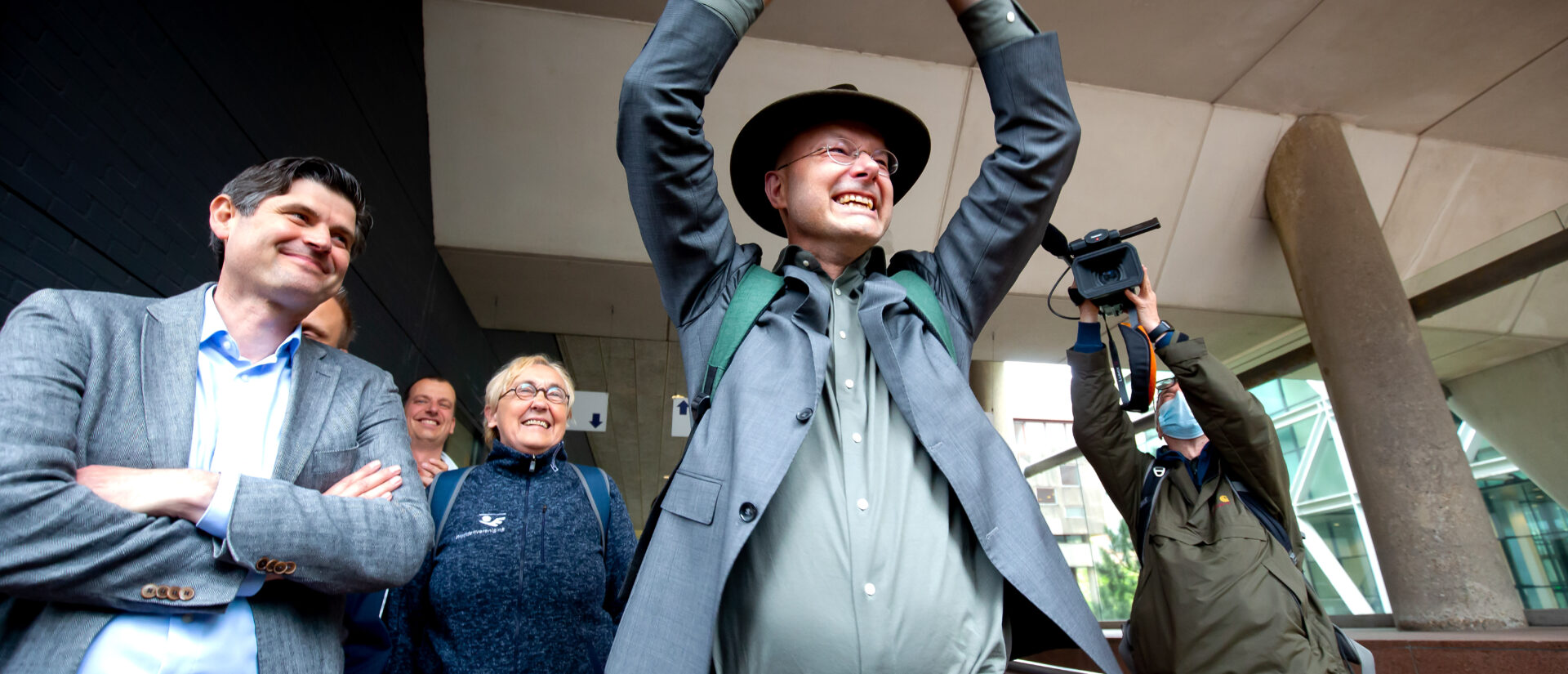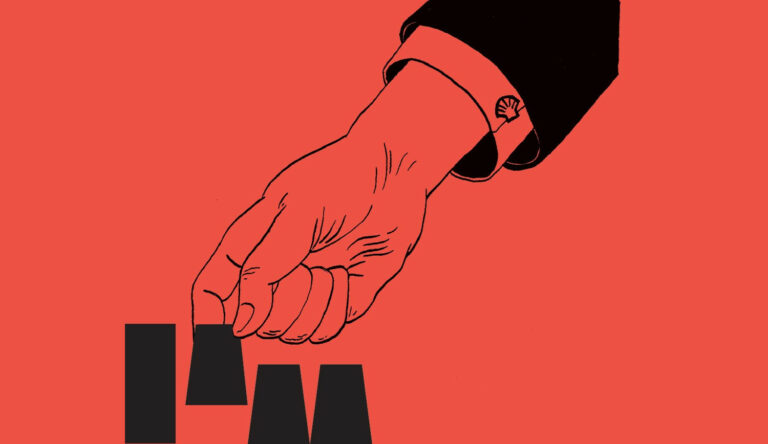
The Shell climate verdict: a major win for mandatory due diligence and corporate accountability


The global movement to hold corporations accountable for their impact on the climate is having a moment. Wednesday, 26 May, may well go down in history as the most important day of climate news in 2021, though the news emanated from corporate boardrooms and courthouses rather than the usual political summit or intergovernmental gathering. In the US, activist shareholders succeed in electing two climate-focused board members to the board of Exxon(opens in new window) and won a vote pushing Chevron to reduce emissions. In Australia, the Federal Court delivered a landmark judgement(opens in new window) on climate change, ruling that the Environment Minister has a duty of care toward future generation. But perhaps the biggest bombshell came in the Netherlands, where a Dutch court(opens in new window) awarded a major legal victory to NGOs and Dutch citizens, ordering oil giant Shell to drastically cut its greenhouse gas emissions.
The verdict(opens in new window) handed down last week in the climate case filed by Milieudefensie(opens in new window) in 2019 against Royal Dutch Shell (Shell) has rightly been called historic: Shell must reduce its CO2 emissions by net 45% by 2030 (compared with 2019) regardless of the actions or policies of the Dutch government. But the ruling is historic for other reasons as well: the court based its verdict to a large extent on two soft law standards – the United Nations Guiding Principles on Business and Human Rights(opens in new window) (UNGPs) and OECD Guidelines for Multinational Enterprises(opens in new window) (OECD Guidelines). In addition, it asserts that companies have an individual responsibility to combat climate change throughout their value chains, and it very clearly links climate change to human rights. This means the judgment is likely to play an important role in the realisation of mandatory due diligence legislation.
The court in The Hague ruled that Shell’s total CO2 emission levels, from its own operations and the activities of its business relations such as suppliers and end users, present a breach of the company’s legal obligation to prevent dangerous climate change. The judges based their verdict on a provision of the Dutch Civil Code, which stipulates a person can be held liable for damage caused by another person as a result of an unlawful act. An unlawful act comprises either an action or failure to act, in breach of either a legal obligation or what can be expected according to unwritten law. In other words, a person or company has a duty to prevent harm to others by operating in accordance with the prevailing standard of care in society.
The UNGPs and OECD Guidelines as a standard of care
In order to define the unwritten “standard of care” in this case, the Dutch court drew heavily upon the UNGPs and OECD Guidelines, among other international norms and standards. According to the judges, the UNGPs are “authoritative”, “widely supported internationally” and reflect “current insights”. A company must therefore comply with the UNGPs, regardless of whether it has publicly stated to do so. “The responsibility of business enterprises to respect human rights, as formulated in the UNGPs, is a global standard of expected conduct for all business enterprises wherever they operate. It exists independently of States’ abilities and/or willingness to fulfil their own human rights obligations,” the court writes (article 4.4.13). Companies have an individual responsibility to respect human rights, which cannot be deferred by relying on the actions of states to protect human rights: “It is not an optional responsibility for companies. It applies everywhere, regardless of the local legal context, and is not passive” (article 4.4.15). Interestingly, the court also emphasises the responsibility Shell headquarters has over the entire Shell group. The court thereby acknowledges parent companies’ responsibility for subsidiaries as well as the potentially harmful impact of corporate policies, or lack thereof.
The court recognises that while all companies have a responsibility to respect human rights, the means through which they can meet this responsibility differ depending on the severity of a company’s human rights impacts as well as a company’s size, sector, operational context, ownership and structure. In this case, the court has “high expectations” of Shell, which comprises 1,100 companies worldwide and produces total CO2 emissions which exceed those of many countries in the world. Referring to a publication by the Oxford University Net Zero Network(opens in new window) , the court underlines that Shell’s responsibility to reduce emissions extends not only to its own operations (Scope 1), but to its entire value chain, including suppliers and end users of its products (Scope 2 and 3).
Shell’s defence that an obligation to reduce emissions would harm the “level playing field” – an argument businesses use frequently to oppose mandatory due diligence legislation – was rejected by the judges. The ruling also makes clear that the severity of the human rights harms climate change can cause justifies the economic sacrifices Shell will be required to make. “This could curb the potential growth of the Shell group,” the court writes. “However, the interest served with the reduction obligation outweighs the Shell group’s commercial interests.”
A huge step for corporate accountability
The Shell climate ruling is the first ever worldwide to impose a clear and measurable emissions reduction target on a company and its value chain. It also contains a number of ground-breaking decisions for the future of corporate accountability. The judgment affirms that companies of all sizes, at all times, have an individual responsibility to prevent human rights violations and environmental damage in their operations and entire value chain, and failure to do so can be considered an unlawful act. The verdict shows the UNGPs are up to defining the standard of care to which companies must adhere. It also underlines the need for mandatory due diligence legislation that further defines the obligations of companies to prevent human rights violations and environmental damage, and enables public regulators and judges to enforce such legislation. The ruling also makes it very clear that preventing climate change harm is an essential element of responsible business conduct as defined by the UNGPs and the OECD Guidelines. Finally, the verdict shows that companies’ financial objectives cannot prevail over their obligation to respect human rights, the climate and the environment.
This op-ed was written together with Manon Wolfkamp (MVO Platform) and first published on the website of the Business & Human Rights Resource Centre(opens in new window) .
Do you need more information?
-

Joseph Wilde-Ramsing
Advocacy Director -

David Ollivier de Leth
Researcher
Partners


Related content
-
 Shell incapable of meaningful role in energy transitionPosted in category:News
Shell incapable of meaningful role in energy transitionPosted in category:News Ilona HartliefPublished on:
Ilona HartliefPublished on: -
Still playing the Shell Game Published on:
 Ilona HartliefPosted in category:Publication
Ilona HartliefPosted in category:Publication Ilona Hartlief
Ilona Hartlief
-
Shell’s legal weapon to threaten a just energy futurePosted in category:Opinion
 Bart-Jaap VerbeekPublished on:
Bart-Jaap VerbeekPublished on: Bart-Jaap Verbeek
Bart-Jaap Verbeek -
Quick profits, lasting damagesPosted in category:Opinion
 Ilona HartliefPublished on:
Ilona HartliefPublished on: Ilona Hartlief
Ilona Hartlief

